Measles persists due to vaccination shortfall
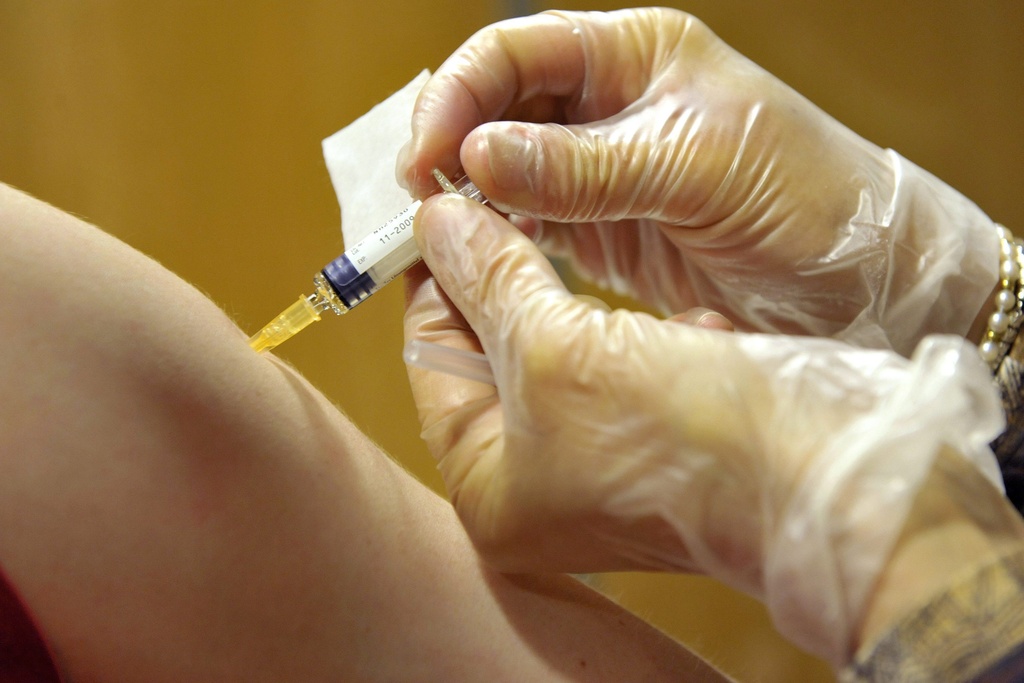
Switzerland has reported an alarming increase in measles cases this year.
As European Immunization Week draws to a close, president of the Federal Vaccination Commission, Claire-Anne Siegrist, tells swissinfo.ch insufficient vaccination rates are responsible for the rise.
The Federal Health Office reports that 231 cases were declared in March and April, compared with just 59 cases in the 11 months from January through to November last year.
The World Health Organization (WHO) had aimed to eliminate measles from Europe by 2010. But the persistent virus has resisted. The WHO has had to review its plans, moving the eradication deadline forward to 2015.
It is still an ambitious goal because, far from disappearing, there have been new outbreaks of the disease in Europe, particularly in France where thousands of cases have been reported. Switzerland is also seeing a significant rate of infection with 362 new cases reported since December 2010.
swissinfo.ch: How do you interpret the renewed outbreaks of measles after a stable period between 2000 and 2006?
Claire-Anne Siegrist: The measles virus can be compared to a target missile. It is capable of searching for the unprotected people in the population and infecting them. When the virus hasn’t circulated for a while, the number of people susceptible to catching it increases. When the virus re-emerges, it therefore has thousands of new people to infect. The Federal Health Office estimates that there are currently between 200,000 and 250,000 young people under 25 who are not protected against measles.
swissinfo.ch: Why is it that Switzerland is one of the last bastions in Europe of the measles virus?
C-A. S.: Switzerland has insufficient vaccination coverage to block the circulation of the measles virus. There are two reasons for this. Firstly there is a small group of people who are clearly opposed to vaccination. They do not vaccinate their children. Secondly about 15 per cent of the population are unsure as to whether a vaccination for measles is really necessary. This is a problematic proportion.
This hesitation means that the rate of vaccination necessary to eliminate the disease [95 per cent with two doses] is achieved much too late. By the age of 16, 95 per cent of young people have been vaccinated. However at two years old the national average is only 86 per cent. This difference of ten per cent is enough to allow the virus to circulate and break out regularly.
swissinfo.ch: How can the elimination of measles be encouraged?
C-A. S.: The difficultly lies in information, because we are not afraid of what we don’t see. These days vaccination coverage is wider and we don’t notice cases of measles as much. As soon as there is an epidemic everybody hears about it and they line up for vaccinations. But when it passes, we think of other things. It is therefore important to inform the population, to emphasise that this disease can be serious and can be avoided with an easily tolerated vaccine.
Countries all over the world are working to eliminate measles. And awareness campaigns for vaccinations have proven effective. In Finland, measles, mumps and rubella have been eradicated since 1996. And in the whole of North and South America there are less cases of measles than in Switzerland.
As it is a purely human virus, unlike the flu, it is enough to increase the proportion of people vaccinated for it to disappear.
swissinfo.ch: What are the consequences of measles?
C-A. S. : Measles is a respiratory infection. It first appears in the form of a cold, with a cough, red eyes and fever. The red spots only appear in a second stage. For the vast majority of people measles represents a tiring but benign illness without complications which lasts about tendays.
Unfortunately this is not the case for everyone. One person in ten will have a non-serious complication of measles, such as secondary infection, beginning of pneumonia or ear infection. But one patient in 15 will have a case of measles that requires hospitalisation, often because of respiratory complications.
And around one in a thousand will die or have lifelong consequences because of a severe pneumonia or encephalitis [an infection that causes brain swelling].
swissinfo.ch : In case of contact with a person infected with measles, is it still possible to protect oneself to prevent the spread of the virus?
C-A.S.: Yes. If you know that you have been in contact with measles, you have three days, from the moment of contamination, to vaccinate yourself. Because the vaccine, administered directly into the muscle, propagates more quickly than the disease.
Which is why in each case of measles, the cantonal doctors and their services carry out a detailed enquiry. This is to find all the people who have been in contact with the affected person and to ensure that they have been vaccinated or are immune. The difficulty is that you only know you have measles when you are covered in red spots. A person is already contagious for two or three days before the spots appear and the virus spreads very easily.
If you enter a room where someone who is still in the incubation period has sneezed two hours previously, you can still catch the virus by spending just a few minutes there. Measles is the most contagious of all the viruses. All those who have not been vaccinated will catch it one day.
By April 18, 2011, 33 countries in Europe had identified more than 6,500 cases of measles since the start of the year. Among them:
Belgium, which has reported 100 cases to date, compared to 40 cases in all of 2010.
Bulgaria reported 131 cases this year, compared to 24 cases in 2009-10.
France reported 4, 937 cases from January to March 2011, compared to 5,090 cases reported in 2010.
In Serbia, nearly 300 cases have been reported from Leskovac in the south eastern part of the country.
The theme of the is year’s WHO European Immunization Week is “Shared solutions to common threats”. More than 50 countries are taking part.
Source: World Health Organization (WHO)
362. The Federal Health Office notes that since December 2010, “362 cases of measles have been declared in 19 cantons, compared to 59 for the first 11 months of 2010.” With 111 cases declared in March and 120 in April 2011, the illness has been particularly widespread in the past two months.
Breakdown. Among the cases declared since December 2010, 43 per cent were aged 20 years or over, 85 per cent were not vaccinated, and eight per cent were insufficiently vaccinated. Eight per cent of patients were hospitalised and five per cent suffered pneumonia.
Source: Federal Health Office
Medical experts with the support of the Federal Health Office have just launched a website which allows users to create an electronic vaccination record. The aim is to help people see more easily if there is a vaccination missing.
The user opens a personal account and then records the vaccines he or she has received. When completed, the user receives a vaccine report with a green light for each disease he or she is up to date on and a red light for those which have lapsed. Users can also choose to share the online record with their doctor or pharmacist.
Reminder. The user can also chose to be notified free of charge by mail or sms when a vaccination is necessary.
iphone. The vaccination record can also be set up by iPhone with the application myViavac.
(Translated from French by Clare O’Dea)

In compliance with the JTI standards
More: SWI swissinfo.ch certified by the Journalism Trust Initiative
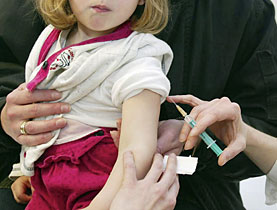
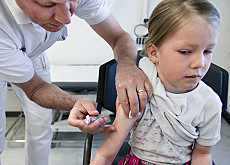
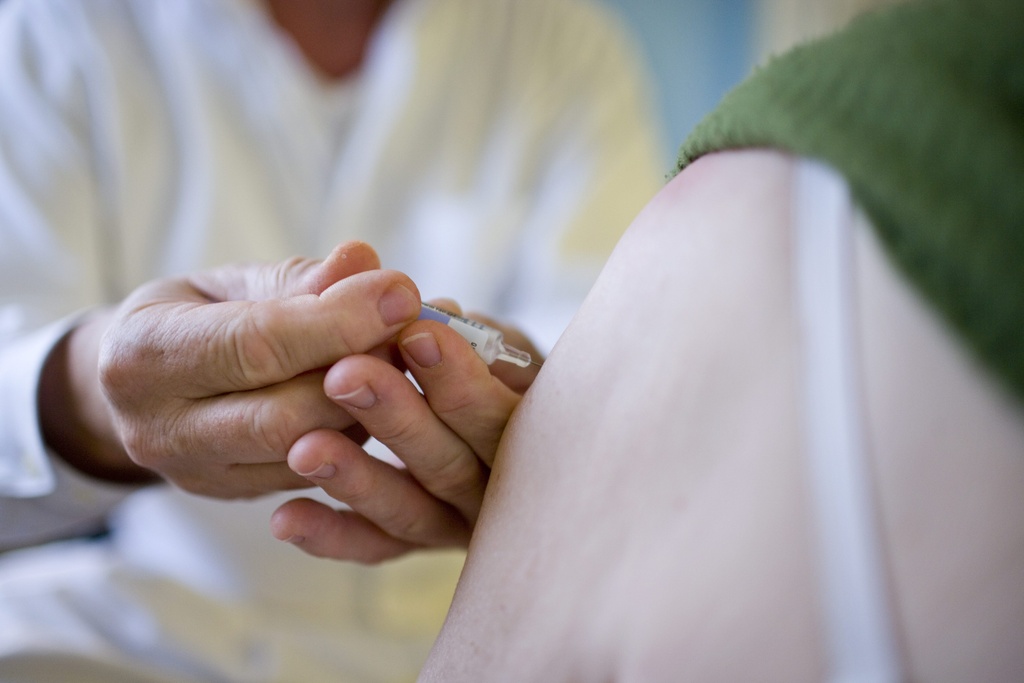
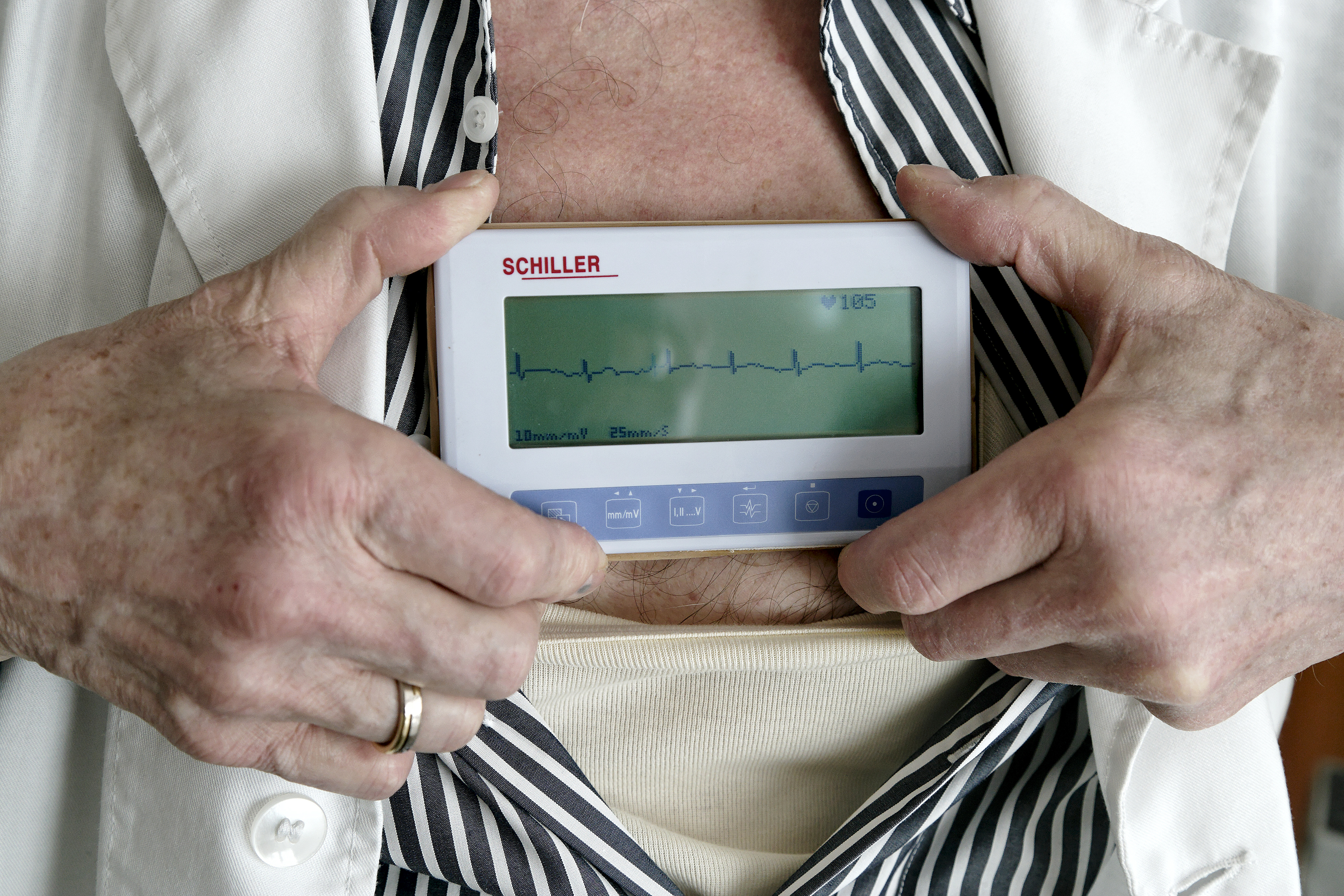
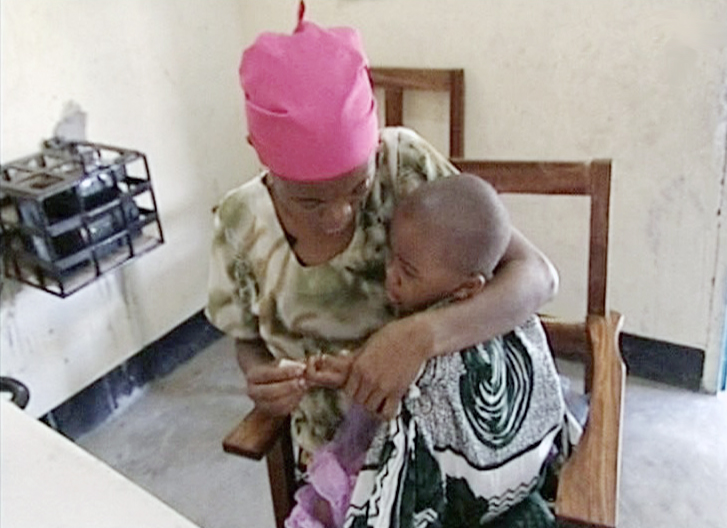
You can find an overview of ongoing debates with our journalists here. Please join us!
If you want to start a conversation about a topic raised in this article or want to report factual errors, email us at english@swissinfo.ch.